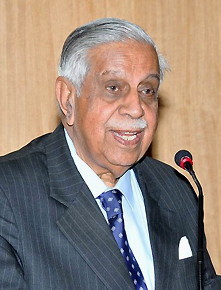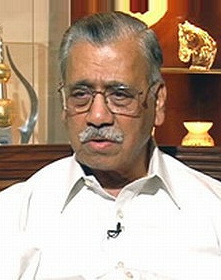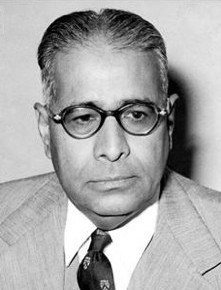
Court Notions
Palden Sherpa vs State of Sikkim and Others on 29 August, 1998
High Court of Sikkim
"... it would appear that it was not in 1917 only but the rulers of Sikkim were conscious all-through to protect the interest of the indigenous people and to see that they are not exploited by the people other than the specified communities. The first of its kind is available from a Notice published on 02. 01. 1897 where it was noted that no Bhutia and Lepcha are to be allowed to sell or sublet any of their land without express sanction of the Council. Thereafter came the vital Revenue Order dated 17. 05. 1917 which elaborated the said provision of the above noted Notice of 1897. We may further find that the position was reiterated in some form or other, by a Proclamation dated 30. 08. 1956..."
"... We may now refer to a few other aspects which show that Sherpa have never been accepted as Bhutias in this State for the purpose of inter community land transaction. From a note dated 29. 05. 1996 by the District Collector (East) we get that in practice there had never been any occasion where Sherpas were considered as part of Bhutias as far as matter of alienation of land was concerned. In a communication from the Land Revenue Department date 06. 03. 1981 it was again noted that Sherpas could not be accepted as Bhutia for the purpose of Revenue Order No. 1 of 1917. It would be very interesting to point out to an office memorandum where it has been observed that the State Council did not agree to accept the proposition that Bhutias or Lepchas can be allowed to sell their lands to any Sherpa without express sanction from the Maharaja of Sikkim. That office memorandum dated 12. 05. 1921 was issued by an order of His Highness the Maharaja of Sikkim. In this connection our attention has been drawn to Vol. XVI of the Census Report of 1961 (pages 292 or 329) to show that so far as languages are concerned Sikkim Bhotia, unspecified Bhotia and Sherpa were shown as different communities."
State Of Sikkim vs Surendra Prasad Sharma on 19 April, 1994
Supreme Court of India - Bench: Justice A. M. Ahmadi
22. "Article 371-F, is as stated earlier, a special constitutional provision with respect to the State of Sikkim. ... This being the objective, existing laws or laws in force came to be protected by clause (k) added to Article 371-F."
23. "... the Establishment Rules were merely 'adopted' with modification with effect from 26-4- 1975. Rule 4(4) remains as it was and the Rules continue to be effective from 1-4-1974."
23. "Therefore, if a provision in the Establishment Rules appears to offend Article 16(2), since such a provision is permissible by virtue of Article 16(3) and Parliament permits its continuance by a special provision, Article 371-F(k), the said requirement giving preference to 'locals' cannot be struck down as unconstitutional and any action based on the said provision would not be inconsistent with Part III of the Constitution."
R.C. Poudyal vs. Union of India and others on 10 February, 1993
Supreme Court of India - Bench: Chief Justice M. N. Venkatachaliah
"But in the case of the Sangha, it is not merely a religious institution. It has been historically a political and social institution in Sikkim and the provisions in regard to the seat reserved admit to being construed as a nomination and the Sangha itself being assigned the task of and enabled to indicate the choice of its nominee."
"In view of this historical association, the provisions in the matter of reservation of a seat for the Sangha recognises the social and political role of the institution more than its purely religious identity."
"Clause (f) of Article 371F is intended to enable, a departure from Article 332(2)."
"We are of the opinion that the provisions in the particular situation and the permissible latitudes, cannot be said to be unconstitutional."
"But, in our opinion, clause (f) of Article 371F is intended to enable, a departure from Art. 332(2). This is the clear operational effect of the non obstante clause with which Article 371F opens."
"The departures are not such as to negate fundamental principles. of democracy. Thus, the provisions in the particular situation and the permissible latitudes, cannot be said to be unconstitutional."
"The reservation of seats for Bhutias and Lepchas is necessary because they constitute a minority and in the absence of reservation they may not have any representation in the Legislative Assembly."
"The provisions of clauses (f) of Article 371 F and the consequent changes in the electoral laws were intended to recognise and accommodate the pace of the growth of the political institutions of Sikkim and to make the transition gradual and peaceful and to prevent dominance of one section of the population over another on the basis of ethnic loyalties and identities. These adjustments and accommodations reflect a political expediencies for the maintenance of social equilibrium."
"Historical considerations and compulsions do justify inequality and special treatment."
"Indeed the argument in the case, in the perspective, is really one of violation of the equality principle rather than of the democratic principle. The inequalities in representation in the present case are an inheritance and compulsion from the past. Historical considerations have justified a differential treatment."
"Sikkim still enjoys international personality in international law" - M. Hidayatullah
No less eminent a jury than M. Hidayatullah, retired Chief Justice and later Vice-President of India, had opined, on his advice being sought by the Prince, on the legality of India's action. He has held that enactments by the Indian Parliament could have no effect in altering Sikkim's status as an international personality.
"In opinion of counsel, the status of Sikkim in International Law before and after the constitutional amendment in India remains exactly the same. Sikkim's international distinct personality is unaffected and it is a protectorate as before". Hidayatullah stresses that the relation between India and Sikkim had vested entirely on the treaty of 1950. "A treaty cannot be contemplated unless each contracting party has a distinct sovereign international personality. The treaty 1950 discloses true indica of a distinct international personality in so far as Sikkim is concerned."
He concluded that "Sikkim enjoyed an international personality and still does so, although sovereignty is shared. This is a result of a historical association with India even prior to the Indo-Sikkim Treaty of 1950. This still continues inspite of the events of 1974 and the amendment of the Indian Constitution."

Manepalli Narayana Venkatachaliah
Chief Justice 1993 - 1994

Aziz Mushabber Ahmadi
Chief Justice 1994 - 1997

Mohammed Hidayatullah
Chief Justice 1968 - 1970